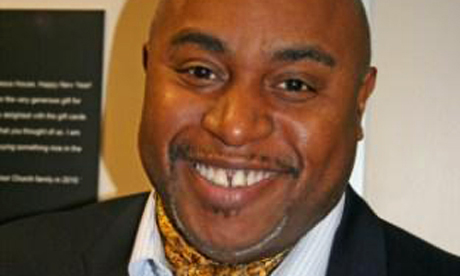Young Londoners still don’t feel police are on their side
In a Hackney secondary school hall a stone’s throw from a street that has been known as “murder mile” and a 10-minute walk from where I live, a hundred or more local people gathered for what was billed as a “community conversation” about youth crime. On the stage sat Boris Johnson, the London mayor; Kit Malthouse who is the mayor’s deputy for policing; three people from youth and voluntary sector circles; and Bishop Wayne Malcolm of the Christian Life City church. It was the bishop who got the evening’s biggest cheer.
“There appears to be a disconnect between young people’s actual experience on the street of the police and what the statistics say,” he said. “There is a perception that the police are not on their side – on the side of law-abiding people – that the police are thuggish, that they’re pretty much another gang, that they are abusing their powers of stop-and-search and that they are treating people and speaking to people with such lack of dignity or respect that …”
At this point the bishop’s words were drowned out by applause. Once it had subsided he referred to the purpose of mentoring young people and how bad policing undermined this: “On the mentoring side we are saying to people, ‘You are someone, you can become someone.’ And their experience with the authorities is, ‘You are nothing, you are in the way.’ I’m saying the perception is real and it really has to be managed.”
More applause. It was a powerful moment and a depressing one – depressing, because its import for an audience mostly comprised of black Londoners was that even if, as is widely believed, the Metropolitan police has upped its community relations game in recent times, there remains a very long way to go.
Other contributions were depressing for the same reason. Strong concern was expressed about the numbers of black children excluded from schools and a lack of help for parents who are struggling – both of these are familiar themes. Another point firmly made disappointed the politicians on the stage: for all their insistence that street patrols have increased in the capital, people complained that they had noticed no such thing (in this they were like 50% of Londoners as a whole, according to the mayor’s newly published annual London survey).
Malthouse displayed a reconciling candour. “We are very conflicted about stop-and-search,” he said. “We recognise that it can be controversial and frankly also that there appear to be quite a lot of very rude police officers, who are more aggressive than they need to be – rude, disrespectful, and not necessarily conforming to the rules.”
He said that he was putting pressure on the Met to improve its training, would like to see more female officers involved in stop-and-search as this can help to lower tensions, and hoped “community observers” could be present at all search scenes, inviting anyone interested in becoming one to send him an email. Yet he was sure the policy was necessary: “We feel that stop-and-search has to be done to protect young people.” The mayor agreed – as does his predecessor Ken Livingstone, who considers stop-and-search “a vital tool.”
It is, though, far from clear that it is helping or that the wider battle to prevent young Londoners being violent towards each other is being won. Analysing figures covering April to October 2009, former Home Office criminologist Marian Fitzgerald found no strong link between the amount of street searches and the incidence of crimes involving knives. Data gathered by the Home Office for the same period and the ensuing six months shows that the number of 13 to 24-year-olds admitted to London hospitals as a result of being assaulted with a sharp object rose to 634 compared with 493 the previous year, which was when Johnson intensified the Met’s anti-knife crime drive, including stop-and-search.
The year before that, 2007/08, the number was 650. What influence did the mayor’s and the Met’s anti-knife crime measures have on either the drop in such hospital admissions that followed their introduction or the subsequent rise back to the previous level? Did it have any influence at all? With an election on the way, Johnson has been getting his crime soundbites in shape. His carefully worded annual report highlights police statistics showing a fall in “youth violence” of “more than six percent” in 2010/11, but doesn’t enumerate the small rise in the most serious of these crimes and doesn’t mention knife crime at all – perhaps because that showed a 7% rise.
And what might be absent from these statistics? As Johnson’s own strategy document Time for Action acknowledged (see page 59), young people, especially from ethnic minorities, are often reluctant to report being victims of violence for fear of reprisals, because they’re involved in criminality themselves or, tellingly, because they lack confidence in the police. When asked if Johnson believes a lot of crime goes unreported, as he claimed in his 2008 manifesto, his office declines to answer.
There are good grounds for taking Johnson’s claims about tackling youth violence with a pinch of salt. It is, though, harder to criticise the high profile he has given the issue – I think my fellow Hackney residents were pleased that he’d dropped by – or the stress he has laid on prevention, intervention and the need to resettle young offenders, along with enforcement. Livingstone accuses Johnson of just making the right noises; but will the noises Livingstone makes or the results he might achieve if he defeats Johnson next year be any more convincing? Will any candidate for mayor propose youth crime policies that truly involve the communities with most at stake and include the heresy of daring to even ask whether stop-and-search is making matters worse?
guardian.co.uk © Guardian News & Media Limited 2010
Published via the Guardian News Feed plugin for WordPress.

